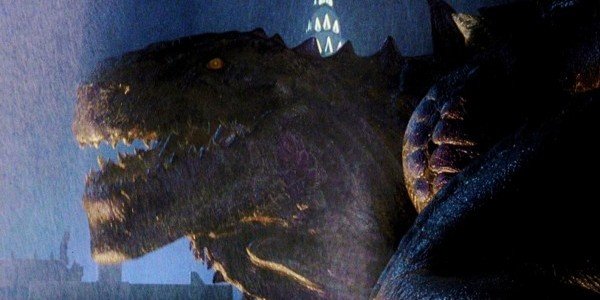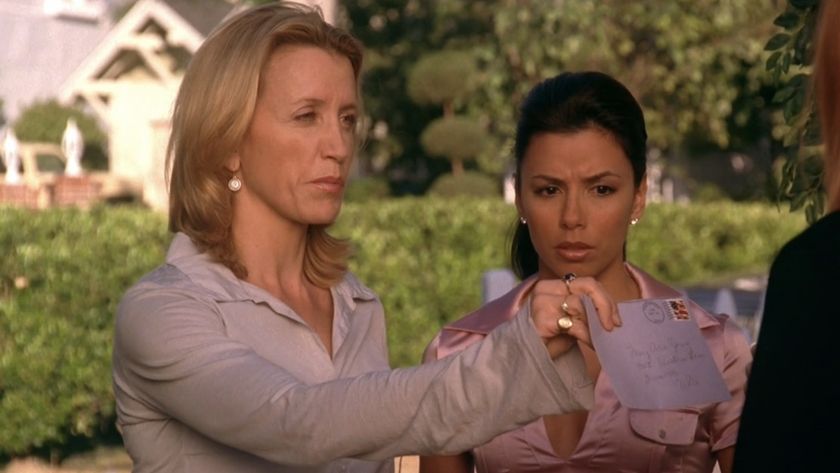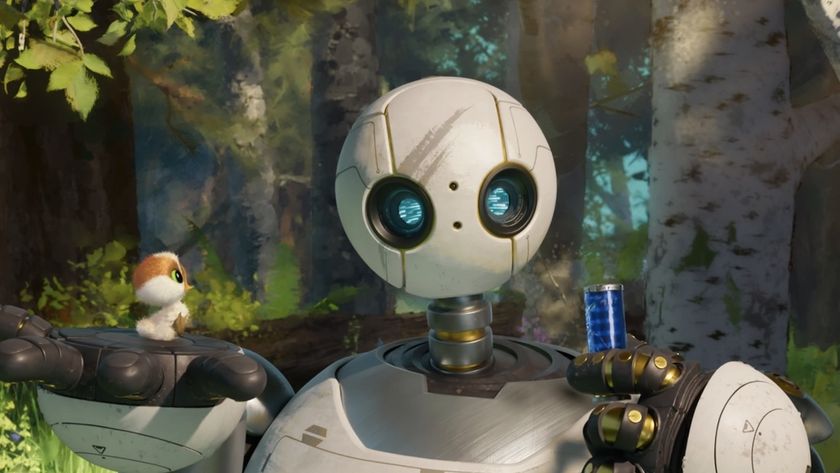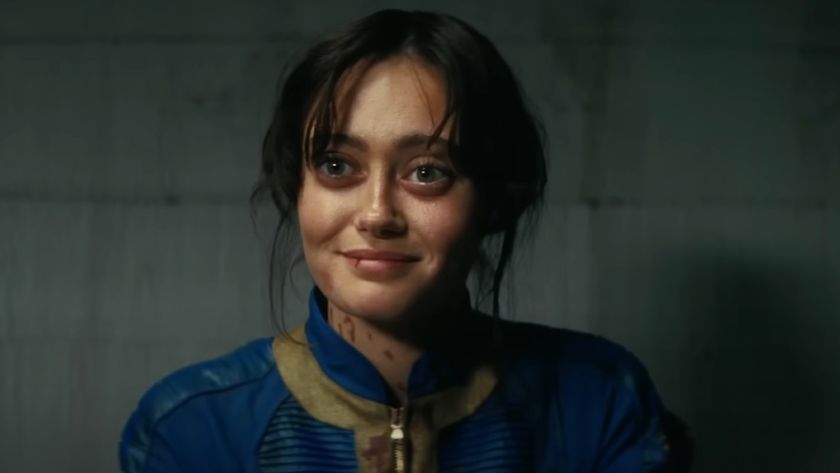
The consensus regarding this weekend's Godzilla, which just debuted to $93 million, was that it completely wiped away the memory of the 1998 film of the same name. But as this Godzilla roared over soot and carnage, standing over the chaos and exhibiting his supremacy over fellow monsters, I couldn't help but think that I just wasn't having any fun.
The new Godzilla has moments of weirdly haunting grace and beauty. The effects are handsome and convincing, and Godzilla himself has never looked more fearsome, his scales shaking with every step, his tail wielded like a mace. But the first monster introduced is very much decidedly not Godzilla. And by the time the big guy shows up, you're a steroidal version of Ken Watanabe's character, begging, "LET THEM FIGHT." Eventually I had to face the truth: I had more fun watching 1998's Godzilla.
That picture was a marketing bonanza that took the Godzilla phenomenon and went hard left, changing his appearance by making him more of a T-Rex analogue that would lay eggs and give birth to, essentially, velociraptors. It was a blank check for blockbuster-factory Roland Emmerich, working for the last time with Independence Day buddy Dean Devlin. The guy had so much contempt for blockbusters, audiences, Godzilla himself and even critics that the film remains one of the most hated blockbusters in history. There's been no revisionist attitudes regarding the movie, no nostalgic attachment from those tricked by the dopey teaser trailers, no reappraisals of any kind.
But as I pondered the conceptual depth of '14's Godzilla and the insight into our nuclear world, I realized something: do we even like Godzilla? The marketing job for the new film (as well as the '98 marketing) was doing a helluva job of making the general public forget that they'd even seen a Godzilla movie before. But if you've seen many of them, and are something of a diehard, you know what to expect: silly human behavior, wacky sci-fi villains and a beast that flailed from inside a rubber suit. Usually there'd be a whole lot of downtime, then the final battle would be interminable, and affectionately overstay its welcome for an additional five to 10 minutes. You could never, say, mainline three Godzilla movies in a row.
But if you go back to the roots of the original Godzilla (as this movie did), there's a sobering story about post-war anxieties and survivor's guilt. Godzilla is a force of nature, terrifying and upsetting, and humanity is basically powerless to stop it. There's no "fun" in the original film, and in fact it's fairly slow, and ultimately, insanely downbeat. When people said, "Hey, pop in a Godzilla movie," chances are they were never referring to that first one.
1998's Godzilla, meanwhile, seems to be made for the public's true understanding of Godzilla. No, not from the movies, but from cheap jokes, commercials, and repeated branding opportunities. Cynical and opportunist, sure, but more honest: here was Godzilla molded into some sort of Jurassic Park escapee, conspicuously changing size as he sprinted throughout New York, chased by Ferris Bueller and Leon The Professional. Emmerich is best working with numbskull concepts like 2012, the plot of which is literally, "Everything go smashy." With Godzilla, he was dealing with a weighty concept loaded with subtext. And his choice was to just barrel through and make his version of a Godzilla movie, filled with an underqualified cast, bad jokes (Mayor Ebert!) and a soundtrack that made the Gods weep.
Did you have that soundtrack in the new film? No, Gareth Edwards and company were too good for that. Instead of Jamiroquai and Rage Against The Machine, the new film enlists frequent Oscar nominee Alexandre Desplat, a brilliant artist who nonetheless produces a score that is not like the 1954 original, but is otherwise so similar as to be distracting. It's reverent, it's serious, it captures the vibe of the first film. And it's a drag: '98's Godzilla is maybe too busy, with a dorky romance subplot among many strands battling for the audience's attention. The new Godzilla, by contrast, feels barren. Do we need to know anything about Aaron Taylor-Johnson's Ford Brody? Guess not, because we know NOTHING. The bulk of the film's plot is unnecessary, empty padding to get to the monster fight. If you recut this film into a wordless forty minutes, with shots of destruction, storm clouds, and finally monster fights, it would carry much of the same weight.
CINEMABLEND NEWSLETTER
Your Daily Blend of Entertainment News
The Godzilla from 1998's movie was ultimately dubbed GINO by fans, as in Godzilla In Name Only. This silly bastard was so hated that he showed up again in Toho's Godzilla: Final Wars, only for old-school Godzilla to chuck him into the Sydney Opera House and incinerate him.
Of course, to "true" Godzilla fans, this scene and Final Wars on its own represent two forms of disrespect. One, the very EXISTENCE of GINO as some sort of perversion of the original, less athletic Godzilla. And two, the recreation of Godzilla not as a manifestation as a society's fears and inadequacies, but as a brawny, avenging brawler. Look, I'm not saying we need to reassess 1998's Godzilla. But amusement, disgust, and unintentional humor stems from Emmerich's version, a goofy blight that tries to turn Godzilla into a theme park ride. Compared to the new film, with its dour 9/11-baiting violence, somber human characters, and disposable treatment of human characters, and I think I know which one I would re-watch.
Most Popular










